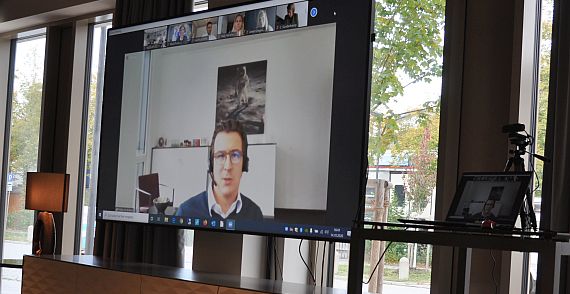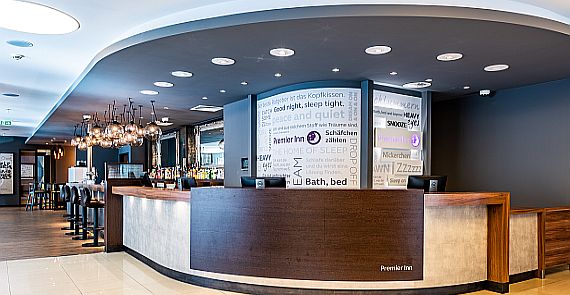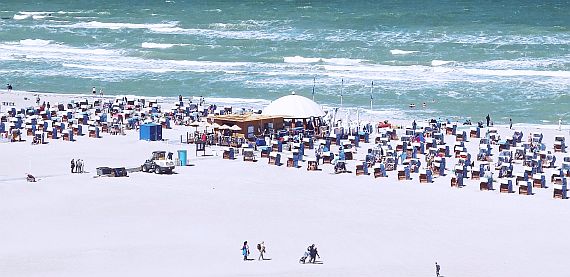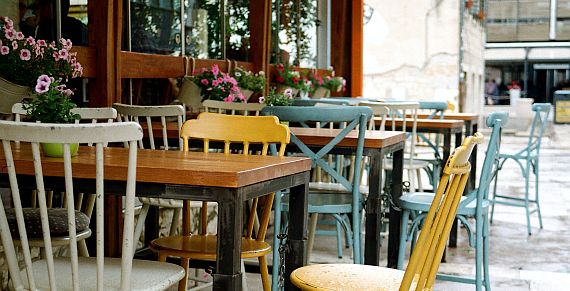
News & Stories
Wiesbaden. The corona crisis has shaken the franchise industry thoroughly. Franchisors and franchisees are more dependent on each other than ever. From the franchisors' perspective, everything sounds fine: waiver or suspension of fees, relaxed brand standards, more communication… Accor, Marriott, IHG, Hilton, Choice, Best Western provide insights into their measures. However, we have not received any feedback from franchisees.
Munich. When the real estate trade fair Expo Real in Munich was cancelled at short notice Monday night, the editorial team of hopspitalityInside.com organised its own hybrid "Expo Real 2020" at the apartment hotel MaSeven in Munich overnight and had 35 experts joining from the hotel industry, real estate and services. The conclusion of the two-hour exchange of views via video call on Wednesday: The situation remains deadly serious, the industry needs to make itself heard better, maybe also via newly created mouthpieces. In addition, Stefan Rummel, Managing Director at Messe Muenchen, explained live the reasons for the cancellation of Expo Real.
London. Mark Anderson is working from his home office. In the last few months, he has travelled little and moves between web calls and home schooling. In the British Whitbread group, where he is responsible for about 830 Premier Inn hotels as Managing Director, the business year 2019/2020 was concluded in May – in the middle of the first corona chaos. A cash cushion of about 2 billion pounds should help to master the crisis and even drive the expansion further – especially in the declared growth market of Germany. An interview with Mark Anderson, Managing Director, Property & Premier Inn International Whitbread Group: Cash can make deals happen.
Munich. They're not just speakers, they're the most successful, most sought-after and best experts in some particular field X; they are top speakers, top keynote speakers or global leading speakers. Several thousand listeners regularly flock to their lectures... Video chats and podcasts are becoming increasingly popular, but in the end they are nothing more than one long advertisement, an extended commercial. In his book "Seit ich lüge, läuft der Laden", marketing expert Nils-Peter Hey takes a critical journey full of satire through the world of deception and deceit in the speaker scene.
Augsburg. On Wednesday, the German Federal Foreign Office decided to replace the general travel bans by individual travel alerts starting from October 1. Will this help the hotel industry to survive the dark months of fall and winter? These concerns and many other aspects also resonated in the answers of hoteliers and hotel groups in cities and holiday destinations when we asked them: "How was the holiday month of August?" The heads of Baur au Lac Zurich and Buergenstock Resorts Lucerne, Hotel Hochschober, Travel Charme, Seetelhotels, hotel alliances in individual cities and the two consortia Romantik and Preferred Hotels are speaking out.
Berlin/Vienna. The desire to travel remains, not only in Europe. Futurologist Andreas Reiter from Vienna is certain: the experience is irreplaceable, highly emotional and therefore only available in analogue form. In 2021 we will regain the freedom we have lost this year, forget our current modesty and look forward to the culture of experience in big Adreanlin jumps.
Travel will become more conscious, will no longer be possible so spontaneously, but will be gently guided by digital tools. The tourism industry as such can no longer release happiness hormones, its sexiness is dwindling, which is why it will have to fight even harder for many talents in the future.
The video interview with hospitalityInside editor-in-chief Maria Pütz-Willems about post-pandemic travel, which was produced this week, can be found below. Share it via this link. / kn
Andreas Reiter will also give a keynote address on post-pandemic travel at the Expo Real Hybrid Summit on 14 October in Munich, during the hotel conference "Hospitality Industry Dialogue" from 3-15.50 pm.
New York. The ranking of the world's biggest hotel chains remained largely unchanged at year end 2019, compared to 2018, as Asian-based groups continue to drive growth. Indian Oyo moved up to 3rd place but its continued growth could be threatened.
Munich. "Everyone can travel" has been the slogan for 20 years of Berlin's a&o Hostels, which have become the largest chain of hostels in Europe. In 2020 this slogan seems like a pious wish. The backpackers have broken away, as have school classes and groups. This puts the concept of hostels, sharing and co-living operators on the edge. But all continue to believe in the power of their flexibility and their modified concept for the younger generation. Co-Living currently focuses more on living than on the community, hostels are happy about their smaller, individual units with a mini-bathroom, which enables them to address new target groups.
Cologne. Dirk Iserlohe is not prepared to let the virus and politics ruin 15 years of reform at Dorint Hotels. He keeps a cool head and takes a detailed look at the applicable legal provisions - and so also takes politicians to task. "The bridging loan is the 'Trojan horse' of insolvency," he says, criticising what he sees and wrongly conceived state aid. "The existing 'over'-regulation in various areas of the law leads to an exponentially negative impact for our industry", he says, putting salt in the wound. His conclusion: "The involvement of the state has been of a merely palliative nature." Now, he is fighting against the existing legal provisions on "interference with the basis of the business" and is putting concrete proposals to politicians and landlords alike. Dirk Iserlohe is Chairman of the Supervisory Board of DHI Dorint Hospitality & Innovation GmbH in Cologne and member of the Management Board of its parent company Honestis AG.
Wiesbaden. The re-start in Germany demanded a lot from the hotel companies internally: federal regulations and repeated VAT adjustments are simply nothing but bureaucratic annoyances. The additional expense for the sake of hygiene is also enormous. Nonetheless, very few companies are willing or able not to factor in all this. This is why it is time for creativity and thriftiness. The executives of Success Hotel Group, Bierwirth & Kluth, SV Group, H-Hotels, Motel One, Deutsche Hospitality and Vienna House are responding.








